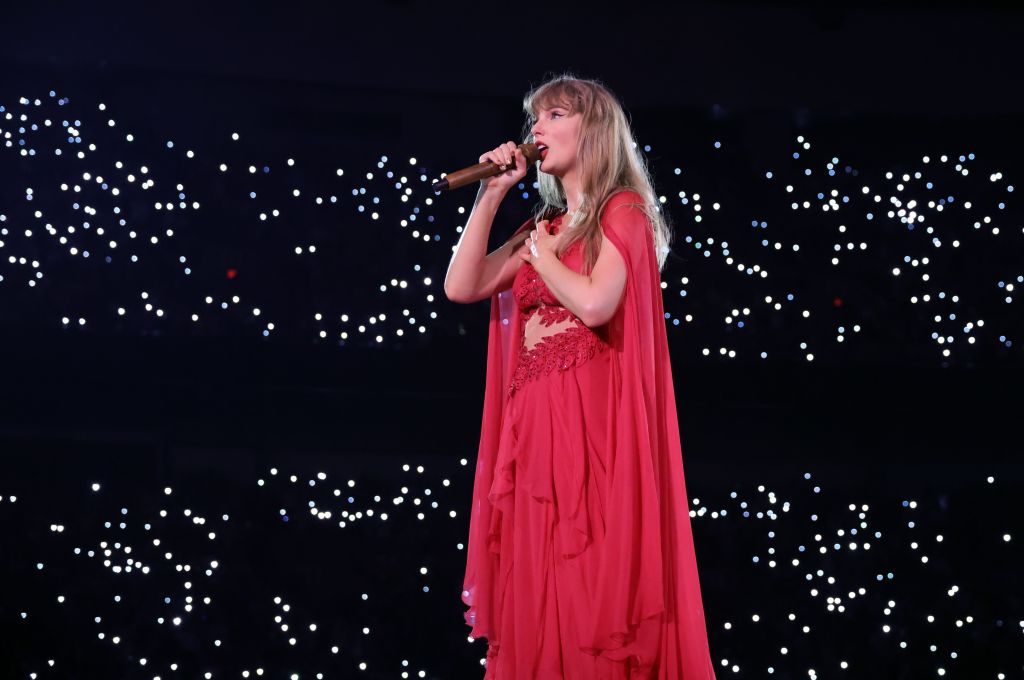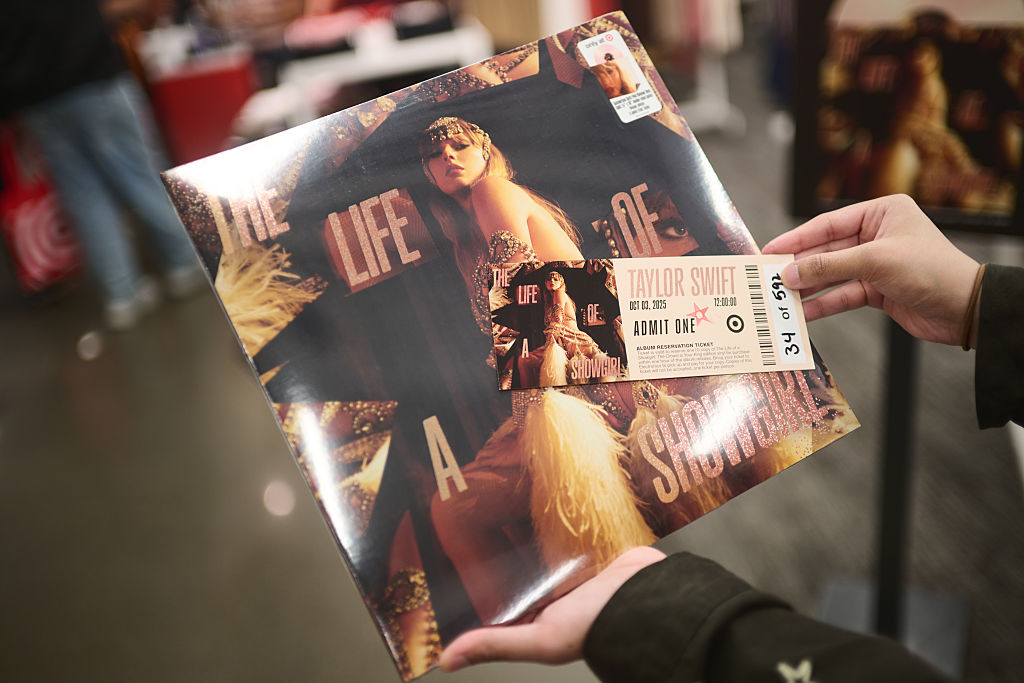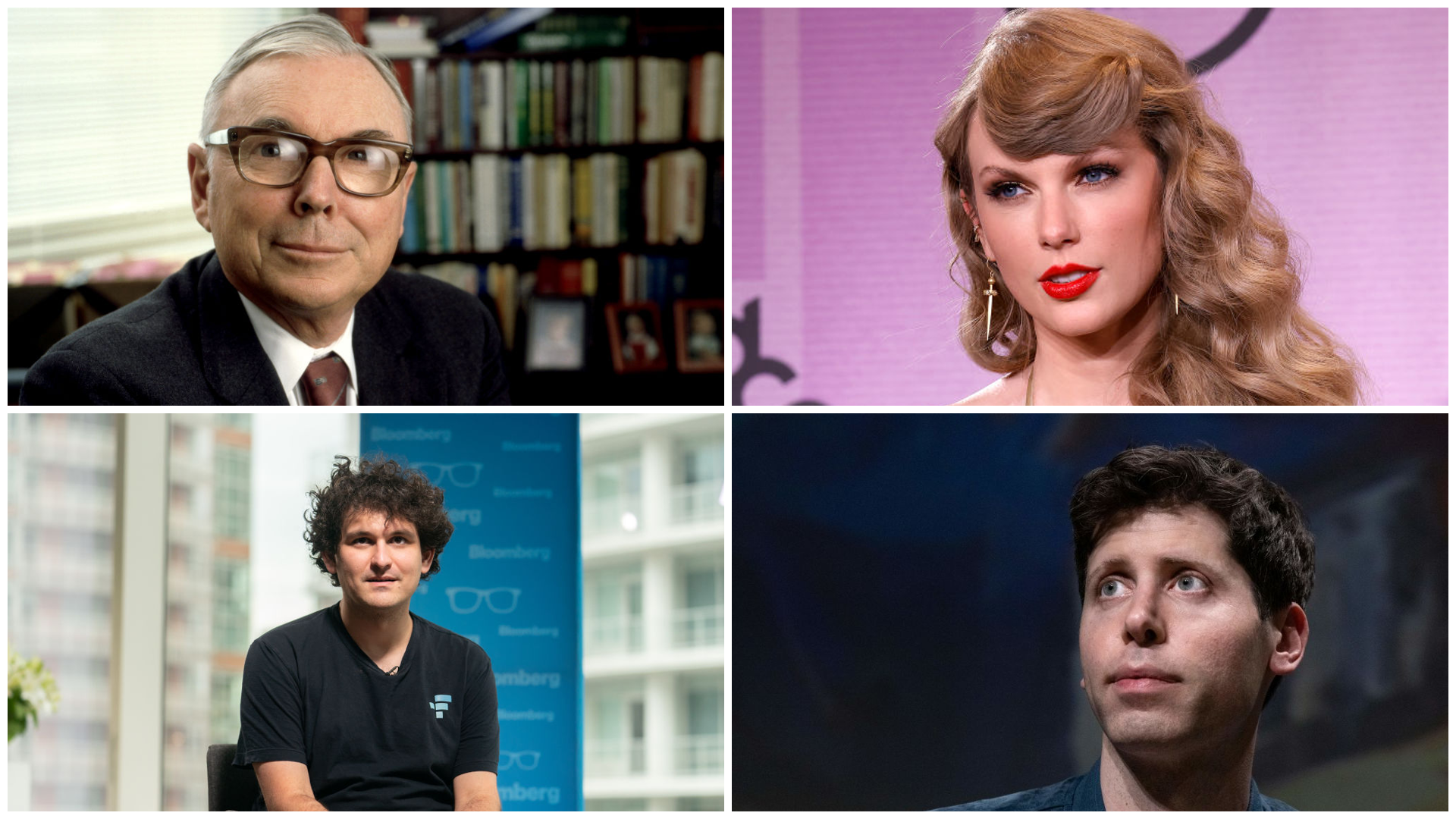What is Taylor Swift's net worth?
Taylor Swift just released her 12th studio album, The Life of a Showgirl, shortly after completing her billion-dollar Eras Tour and buying rights to her first six albums. How much is the pop star worth?


Get the latest financial news, insights and expert analysis from our award-winning MoneyWeek team, to help you understand what really matters when it comes to your finances.
You are now subscribed
Your newsletter sign-up was successful
Want to add more newsletters?

Twice daily
MoneyWeek
Get the latest financial news, insights and expert analysis from our award-winning MoneyWeek team, to help you understand what really matters when it comes to your finances.

Four times a week
Look After My Bills
Sign up to our free money-saving newsletter, filled with the latest news and expert advice to help you find the best tips and deals for managing your bills. Start saving today!
‘Love Story’ was one of the early hits that helped propel Taylor Swift into the spotlight. Nearly two decades later, it seems that the singer-songwriter is living the fairytale — after selling out stadiums at her billion-dollar Eras Tour and releasing her 12th studio album, The Life of a Showgirl.
It’s no wonder that Swift is in her ‘billionaire era’, with a net worth of $1.6 billion, according to Forbes. It doesn’t make her the richest woman in the world, but she is now the richest female musician, surpassing Rihanna.
We delve into Swift's net worth, how she became so successful, and her long-running battle over her music ownership, which finally concluded earlier this year.
MoneyWeek
Subscribe to MoneyWeek today and get your first six magazine issues absolutely FREE

Sign up to Money Morning
Don't miss the latest investment and personal finances news, market analysis, plus money-saving tips with our free twice-daily newsletter
Don't miss the latest investment and personal finances news, market analysis, plus money-saving tips with our free twice-daily newsletter
How did Taylor Swift become famous?
Named after singer-songwriter James Taylor, Swift was born on 13 December 1989 in West Reading, Pennsylvania and showed an early interest in music. At age 12, she learned to play the guitar and began writing songs.
Swift's big break came in 2006 when, at just 17, she signed a record deal with Big Machine Records. Her debut album was a critical and commercial success, spawning several hit singles, including ‘Our Song’, which became Taylor Swift's first number-one hit on the Billboard Hot Country Songs chart.
Although her career began in country music, her songs quickly gained mass appeal. Her second album, Fearless, debuted at number one on the Billboard 200 chart and later became the top-selling album of 2009.
Experimenting with different musical styles and establishing her versatility as a songwriter, her fourth album in 2012, Red, hit the jackpot, cementing her status as one of the biggest pop stars in the world.
Two years later, her fifth album, 1989, marked a departure from her country roots and embraced a full pop sound, becoming a commercial and critical success that won her several awards, including the Grammy for Album of the Year.
In 2019, she released Lover, her first album with Republic Records, which became one of the best-selling albums by a solo artist worldwide.
The pandemic didn’t stop the singer from releasing new music. During 2020, she released two sister albums – Folklore and Evermore – marking a shift towards indie folk music. The former made Swift the first woman to win a Grammy for Album of the Year three times.
Since then, she has gone on to release re-recordings of Fearless (Taylor's Version), Red (Taylor's Version), Speak Now (Taylor's Version) and 1989 (Taylor's Version). She also released Midnights in 2022 and The Tortured Poets Department in 2024.
Between March 2023 and December 2024, Swift was on her billion-dollar Eras Tour, which covered all of her studio albums to date.
Taylor Swift's net worth explained
Taylor Swift is one of the few artists who has reached billionaire status from music sales and performing alone, without the need for side hustles. The Eras Tour and re-recording her first six albums to regain ownership rights were two key milestones in building her net worth.
An immense $800 million has come from music royalties and touring, according to estimates from Forbes. Her music catalogue is worth an estimated $600 million, and she is also thought to have around $110 million in real estate.
The Eras Tour sold more than $2 billion in tickets, The New York Times reported, which is double the gross ticket sales of any concert in history. Her eight nights performing at Wembley Stadium also drew more than 750,000 people. To put this into perspective, that’s roughly how many people live in Seattle.
Box Office Mojo reports that her last concert film, Taylor Swift: The Eras Tour, became the highest-grossing concert/documentary film in box office history, earning more than $261 million globally. It sold about $93 million in tickets during its opening weekend, crushing the previous record held by Spider-Man: No Way Home.
CNN reports that Swift’s decision to work with movie theatre chain AMC directly means she gets to keep a large share of the profits.
More recently, Swift released another concert movie with AMC, Taylor Swift: The Official Release Party of a Showgirl, which is framed as a release party for her latest album and is currently playing in theatres around the world. According to Deadline, it’s expected to rake in around $45 million globally.

An exclusive edition vinyl of Taylor Swift's new album, "Life of a Showgirl"
Taylor Swift’s property portfolio is just as extensive as her music catalogue. Her real estate empire is worth a whopping $150 million, according to Elle Decor. It includes eight homes across four states in the US, ranging from a $150 million penthouse in Manhattan to a historic 12,000-square-foot beach house in Rhode Island. The latter once belonged to socialite Rebekah Harkness, who is the inspiration behind Swift’s song ‘The Last Great American Dynasty’.
What is Travis Kelce’s net worth?
Taylor Swift is set for an exciting next chapter after announcing her engagement to American football player Travis Kelce on 26 August.
In photos shared on Instagram, Swift wore a large engagement ring that diamond experts have tentatively estimated to cost anywhere between $500,000 and $1 million.
Both Swift and Kelce will bring independent wealth to their marriage, but the NFL player has a far smaller fortune than his fiancée. The three-time Super Bowl champion is worth around $70 million, according to Forbes.
That said, their joint brand could become valuable in its own right. Brand Beckham is just one example of how celebrity couples can compound their fame by tying the knot and drawing on each other’s fanbase.
We have already seen evidence of this with Swift and Kelce. The singer-songwriter recently appeared on New Heights, a podcast hosted by Kelce and his brother, during which she announced her new album.
Swift’s appearance meant the podcast set a new Guinness World Record, attracting 1.3 million concurrent views. This was the highest figure ever recorded for a podcast shown on YouTube. The podcast now has over three million views on the platform.
Taylor Swift's cultural influence
From teen idol to pop icon, the American singer-songwriter’s influence is substantial.
In June 2015, Swift criticised Apple Music for not giving royalties to artists during its free three-month trial period, threatening to withdraw her catalogue from the platform. This prompted Apple Music to announce that it would start paying artists during the free trial.
Meanwhile, when The Eras Tour arrived on UK soil last summer, it boosted UK spending and prevented inflation from falling below 2% in June 2024.
Swift’s tour injected roughly $5 billion into the US economy, thanks to The Eras Tour. Fans spent an average of $1,300 on food, travel, accommodation, and merchandise. This is about as much as fans of the Super Bowl spend, CNN reported.
The pop star made headlines after endorsing Kamala Harris during the 2024 US election. According to the General Services Administration, which runs the vote.gov site, Swift’s Instagram endorsement drove more than 400,000 people to the website in less than 24 hours.
Why did Taylor Swift have to buy her music back?
Swift released some of her best-selling music under the Big Machine label. The contract with the record label lasted from 2005 to 2018, and when the deal was up, the artist switched to Universal’s Republic Records. However, Big Machine owned the original recordings of her first six albums.
Big Machine was acquired in 2019 by private equity group Ithaca Holdings, owned by music manager Scooter Braun. Just 17 months later, Braun sold the rights to Swift’s master recordings to Shamrock Capital, a California-based private equity firm. Swift publicly criticised the deal: “This just happened to me without my approval, consultation or consent.”
In 2020, Swift announced she would re-record her first six albums in a bid to regain control of her music. She called her re-releases ‘Taylor's Version’, gambling on her huge fan base to embrace the new recordings.
Four of the re-recorded albums were released – all topping the Billboard 200 charts – before Swift revealed she had finally bought back her master recordings from Shamrock Capital. On 30 May 2025, she posted a photo holding vinyl copies of all six albums with the caption “You Belong With Me”.
It is not yet known how much she paid for the records, but according to Billboard, Shamrock initially bought the rights for around $360 million, and Swift paid close to the original amount.
A post shared by Taylor Swift (@taylorswift)
A photo posted by on
Get the latest financial news, insights and expert analysis from our award-winning MoneyWeek team, to help you understand what really matters when it comes to your finances.

Oojal has a background in consumer journalism and is interested in helping people make the most of their money.
Oojal has an MA in international journalism from Cardiff University, and before joining MoneyWeek, she worked for Look After My Bills, a personal finance website, where she covered guides on household bills and money-saving deals.
Her bylines can be found on Newsquest, Voice.Cymru, DIVA and Sony Music, and she has explored subjects ranging from politics and LGBTQIA+ issues to food and entertainment.
Outside of work, Oojal enjoys travelling, going to the movies and learning Spanish with a little green owl.
-
 Should you buy an active ETF?
Should you buy an active ETF?ETFs are often mischaracterised as passive products, but they can be a convenient way to add active management to your portfolio
-
 Power up your pension before 5 April – easy ways to save before the tax year end
Power up your pension before 5 April – easy ways to save before the tax year endWith the end of the tax year looming, pension savers currently have a window to review and maximise what’s going into their retirement funds – we look at how
